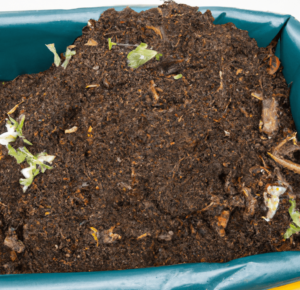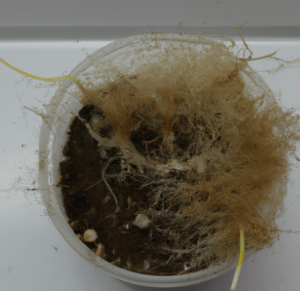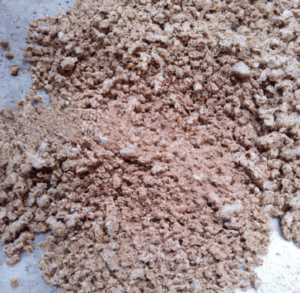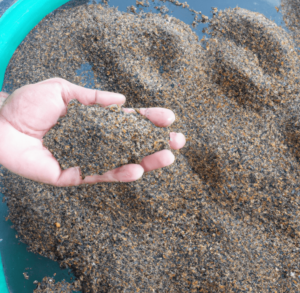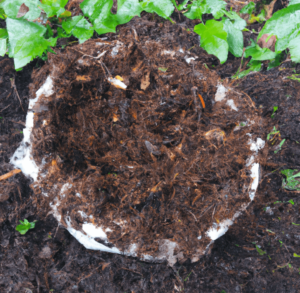Many people love gardening with all of its maintenance and care. Some do it as a hobby, and many families utilize it as a source of food. Every gardener wants their plants to be robust, healthy, and full of life, regardless of the reason they are gardening. To do this, you will want to understand the role of fertilizers in gardening from this blog.
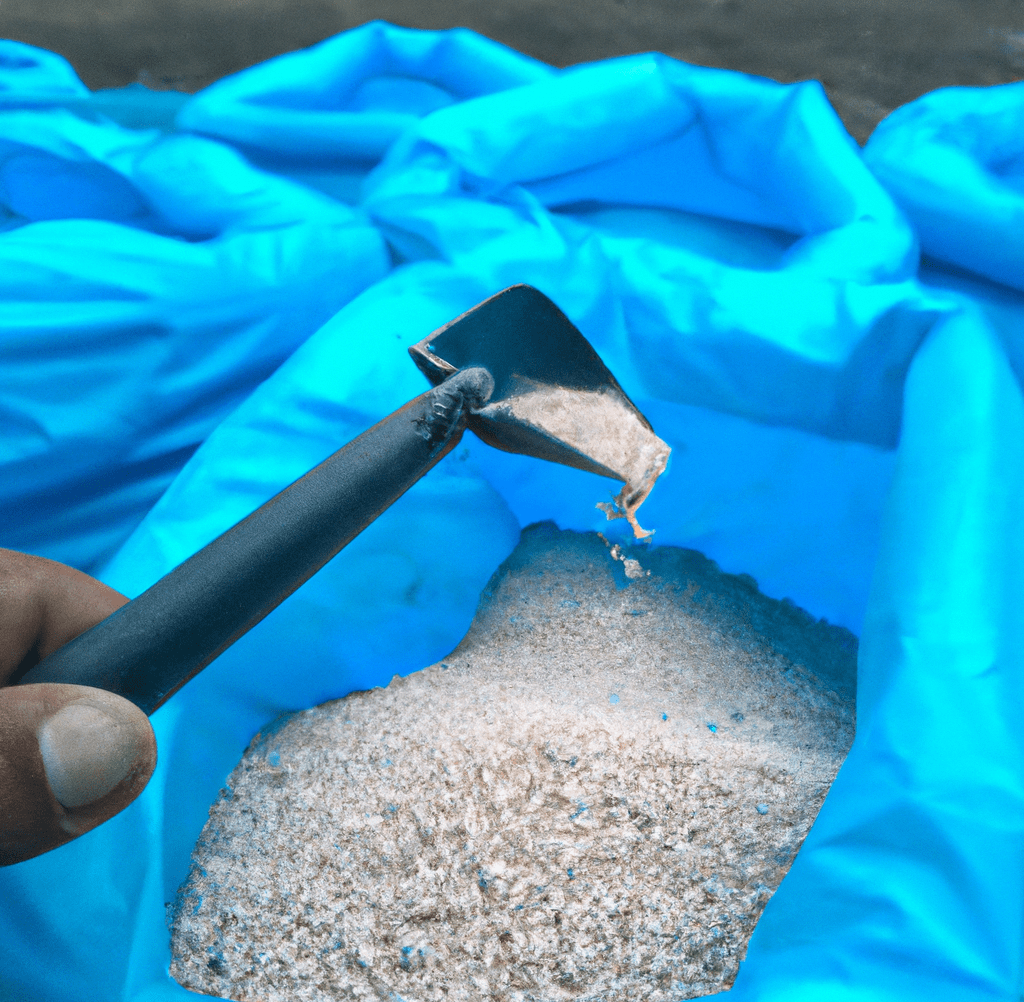
Types of Fertilizers
To encourage healthy growth and soil fertility, you must understand and choose the right fertilizers for your garden. Although the role of fertilizers in gardening doesn’t change, there are two basic types of fertilizers: synthetic and organic.
- Chemical fertilizers or synthetic fertilizers both aim to give specific nutrients to plants directly. Large-scale agriculture frequently makes use of them since they are quick-acting. They can, however, alter the pH levels and decrease the amount of organic matter in the soil, which can have long-term detrimental effects on the health of the soil.
- Organic fertilizers are produced using natural materials like bone meal, compost, and animal manure. They usually take longer to work than synthetic fertilizers but offer a more balanced supply of nutrients and enhance soil health by boosting soil organic matter.
It’s up to the gardener to choose the fertilizer kind that would work best for their plants. However, organic fertilizers are seen to be a superior option for improving long-term soil health and fertility than synthetic fertilizers, which can supply vital minerals for plant growth.
Organic Fertilizers
Organic fertilizers are preferred by gardeners who want to fertilize their plants naturally. Compost, bone meal, and green manure are a few common organic fertilizers used in gardening. Organic elements like grass clippings, leaves, and food scraps are used to make compost. It’s a plentiful source of nutrients and advantageous microorganisms that help to increase the fertility and structure of the soil.
The mineral phosphorus, which is necessary for plant growth and the formation of roots, is found in abundance in bone meal, which is produced by grinding up animal bones. Growing cover crops and integrating them into the soil results in green manure. By adding organic matter to the soil and giving plants vital nutrients like potassium, this kind of fertilizer aids in enhancing soil fertility.
You may also want to learn about the benefits of using vermicompost as a fertilizer. This type of fertilizer uses worms and is still organic which means that they are slow-release fertilizers, which means that over time, they give the plants a consistent supply of nutrients. This helps to lower the risk of plant damage and prevents overfertilization.
Inorganic Fertilizers
Gardeners frequently employ inorganic fertilizers, usually referred to as synthetic or slow-release fertilizers, to replenish the soil’s vital nutrients after learning about the role of fertilizers in gardening. In contrast to organic fertilizers, which are made from natural sources, inorganic fertilizers are made chemically to provide plants with a particular balance of nutrients.
Nitrogen is one of the essential nutrients provided by inorganic fertilizers and is essential for plant growth and the formation of robust stems and leaves. Inorganic fertilizers can be designed to gradually release their nutrients over time, ensuring that the soil is productive for a longer length of time.
To avoid damaging the soil and the environment, it’s crucial for gardeners to apply inorganic fertilizers carefully and in line with the manufacturer’s instructions. When inorganic fertilizers are used excessively, the soil’s ability to support healthy plant development can eventually be compromised.
Comparison of Pros and Cons of Each Type
After learning about the role of fertilizers in gardening, how does one choose between natural or chemical alternatives?
Natural Fertilizers
Pros:
- Increases soil structure and fertility
- Encourages plants to flourish healthily
- Lowers the potential for excessive fertilizing to harm plants.
- Ecologically sound and sustainable
Cons:
- Results take a while to appear
- Can be pricey
- To give enough nutrition, extra supplements could be necessary
Chemical Fertilizers
Pros:
- Rapid results
- Enables quick and effective plant fertilization
- Provides a range of choices to suit different plant requirements
- Possibly more affordable than organic fertilizers
Cons:
- Can cause environmental harm
Organic fertilizers may be the greatest alternative for individuals seeking a more sustainable and environmentally friendly option. Chemical fertilizers, on the other hand, might be a better choice for people looking for quick results and a quick and effective way to fertilize their plants.
Factors to Consider When Using Fertilizers
When you understand the role of fertilizers in gardening and want to use them, keep these in mind:
- Know what your plants need: Knowing which nutrients your plants require and when they require them is essential because different plants have different nutrient needs.
- Compost addition: Adding compost to your garden can provide plants with the nutrients they need and strengthen the soil. Prior to planting and as a top dressing all through the growing season, think about adding compost to your soil.
- pH of the soil: The pH of your soil has an impact on the nutrients that are available to your plants. Knowing your soil’s pH level will help you select the best fertilizer and, if necessary, modify the pH.
- Climate: Your garden’s climate, which includes the temperature, precipitation, and light exposure, might affect how well fertilizers work. To achieve the best results, take into account these variables when selecting and using fertilizers.
- Timing: When utilizing fertilizers, timing is essential. While overfertilizing or applying fertilizer at the incorrect time can harm plants, doing so at the proper time can promote healthier and faster plant growth.
You can make sure your plants get the nutrients they need to thrive and that you are utilizing fertilizers in your garden properly by taking these aspects into account.
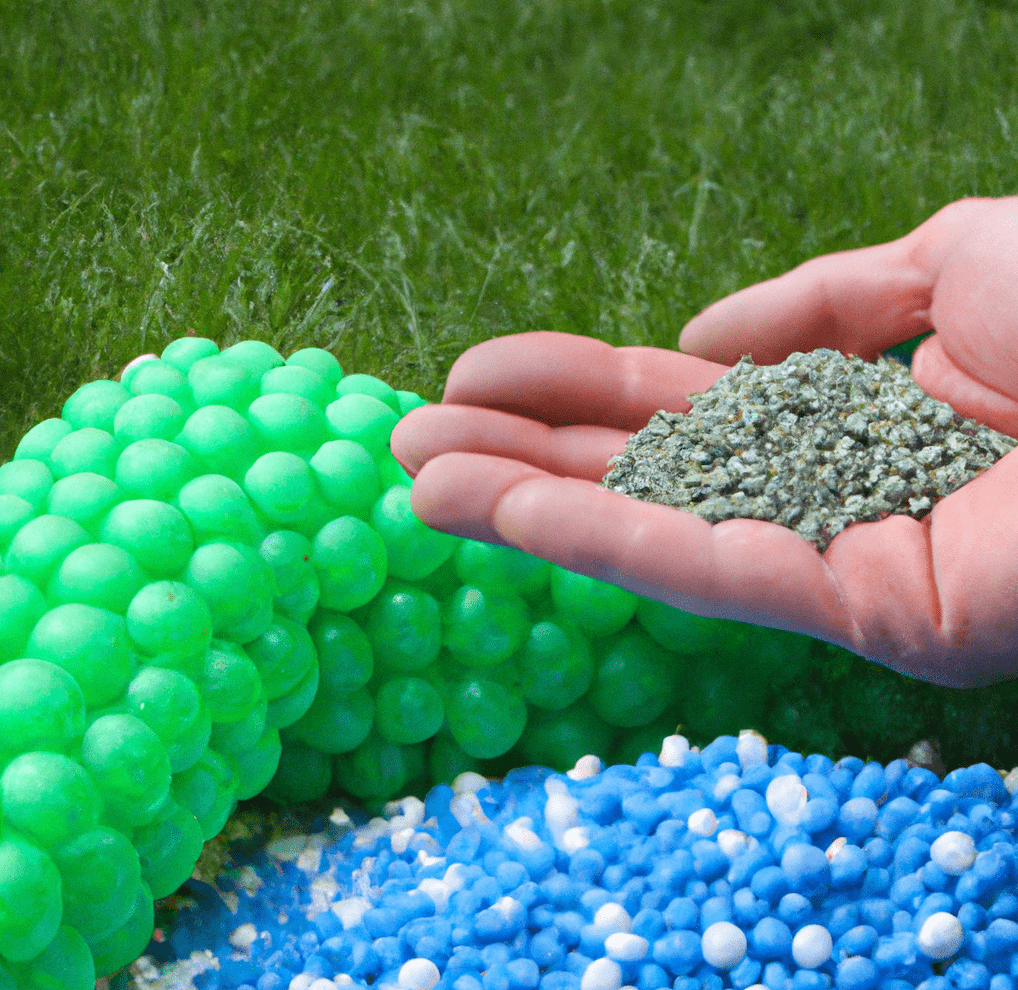
Soil pH and Nutrient Deficiencies
Understanding the role of fertilizers in gardening is also understanding the connection between soil pH and the availability of nutrients to plants is crucial for gardeners. The ability of plants to absorb nutrients can be significantly impacted by the soil pH, which measures the soil’s acidity or alkalinity.
For most plants, a soil pH between 6.0 and 7.0 is optimum. Certain vital elements may become inaccessible to the plant if the soil pH is too low (acidic) or too high (alkaline), which can result in nutrient shortages.
The amount of organic matter in the soil can affect nutrient availability in addition to the pH of the soil. In addition to supplying plants with vital nutrients and enhancing soil structure and water-holding ability, organic matter serves as a natural fertilizer. Healthy plant growth requires healthy soil that is rich in organic materials.
Plant Type and Growth Stage
Understanding the type of plants you are growing and where they are in their growth cycle will help you decide what fertilizer is best for them. The kind and quantity of fertilizer you use can have a significant impact on the health of your plants because different plants have different nutrient requirements.
The health of the soil and the presence of critical minerals like potassium are also important for plant growth. Strong stem development, increased disease resistance, and improved water use efficiency all depend on potassium, in particular. You may decide on the type and quantity of fertilizer to use to ensure the best possible plant health and growth by taking into account the sort of plants you’re cultivating and their stage of development.
Climate and Weather Conditions
A garden’s success is greatly influenced by the climate and weather. These factors affect the availability of water, sunlight, and soil nutrients and dictate the kinds of plants that can flourish in a particular area. Therefore, it’s crucial for gardeners to comprehend their region’s climate and weather patterns as well as how they impact their plants.
The role of fertilizers in gardening is to improve soil fertility and give plants the nutrition they need to thrive. Given its importance as a nutrient for plant growth and development, nitrogen is one of the main ingredients in fertilizer. It’s crucial for gardeners to use nitrogen-rich fertilizers sparingly because overuse can have detrimental effects on the soil and water systems.
Because extreme weather events like droughts or heavy rains can affect soil structure and nutrient availability, soil health is very intimately related to weather conditions. To maintain the best possible soil health, gardeners must closely monitor the moisture levels in the soil and be ready to take the necessary activities, such as watering or adding compost.
How to Apply Fertilizers
Now that you know all about the role of fertilizers in gardening, you can apply fertilizers by doing the following:
- Pick the appropriate fertilizer: Pick a fertilizer that meets the nutrient needs of the plants you are growing and is appropriate for the sort of plants you are cultivating.
- Pick the right moment: Fertilizer should be applied when plants are actively growing. Depending on the plant and the climate, this can change.
- Measure correctly: It’s critical to adhere to the directions on the fertilizer container and use the recommended quantity. The plants can suffer from overfertilizing.
- Spread equally: Do not apply fertilizer to the plant’s leaves or stems; instead, do so evenly around the plant’s base. This guarantees that the nutrients reach the roots.
- Water the plants well after fertilizer application to ensure that the nutrients get to the roots.
You may give your plants the nutrients they require to thrive and yield an abundance of flowers and fruits by following these instructions.
Proper Timing and Frequency of Application
It’s critical for gardeners to understand when and how often to apply organic materials to their plants. Because the role of fertilizers in gardening is so important, the health of your plants and the quality of your soil can be significantly impacted by the timing of application.
It’s advised to apply organic matter in the spring or fall when the plants are not actively growing for the best outcomes. The sort of plants you are growing, the type of soil you have, and how much organic matter you have already added will all affect how frequently you apply.
Applying organic matter every two to three years will generally keep the soil structure healthy and give your plants the nutrients they need.
Methods of Application (e.g. Granular, Liquid, Foliar)
After understanding the role of fertilizers in gardening you’ll learn that fertilizers can be applied in a variety of ways:
- Granular fertilizer is placed on the ground or mixed into the soil before planting and then applied directly to the soil. Granular fertilizers are slow-release, which means that they gradually release nutrients into the soil over time, giving the plants a consistent supply of nutrients.
- Using foliar sprays or watering the plants with the solution, liquid nutrients are sprayed directly onto the leaves of the plants. Due to the fact that the nutrients are rapidly absorbed by the plants, this method has a quicker effect than granular fertilizers. It would need to be reapplied more often, though, as it is more easily washed away by rain or irrigation.
- Foliar fertilizers are administered directly to the leaves, much like liquid fertilizers, but typically in the form of a fine mist. The plant can quickly absorb the nutrients using this strategy since the leaves have a wide surface area for absorption. For plants with a dense canopy, foliar nutrients might not be as efficient because the spray might miss the lower leaves.
The way fertilizer is applied will ultimately depend on the particular requirements of the soil and plants as well as the preferences of the gardener.
Safety Precautions and Guidelines
When applying fertilizers to your plants after understanding the role of fertilizers in gardening, whether they are flowering or producing fruit, it is crucial that you follow safety measures and instructions:
- Carefully read and adhere to the label’s instructions. The type of fertilizer, the suggested application rate, and any safety warnings will all be listed on the package.
- To protect your skin and respiratory system from the irritants in fertilizer dust or spray, put on protective gear such as gloves and a mask.
- Store fertilizers away from children and animals in a cool, dry location.
- On windy days, avoid applying fertilizer because it may easily drift outside of the targeted area and possibly hurt surrounding plants or animals.
- Don’t fertilize your plants excessively. An excessive amount of fertilizer might burn the roots, harming or killing your plants.
Bottom Line: The Role of Fertilizers in Gardening
Gardening is a lucrative and fun hobby that calls for careful attention to detail and the role of fertilizers in gardening is a key element of the activity. The vital nutrients that plants require to develop healthily and robustly are provided by fertilizers. In order to ensure that their plants receive the right nutrition for optimum growth, gardeners use fertilizers to complement the nutrients already present in the soil.
FAQs on the Role of Fertilizers in Gardening
What is the role of fertilizers in gardening?
In gardening, fertilizers are essential for encouraging healthy growth and soil fertility. They give plants the vital nutrients they need for development and general health.
What are the two different kinds of fertilizers?
Synthetic and organic fertilizers are the two main categories of fertilizers. Chemical-based synthetic fertilizers deliver results quickly. Contrarily, organic fertilizers provide a more balanced supply of nutrients and improve the health of the soil because they are made from organic substances like compost, bone meal, and animal manure.
What do organic fertilizers consist of?
Natural substances like compost, bone meal, green manure, and other organic resources like grass clippings, leaves, and food scraps are used to make organic fertilizers. They give balanced nutrient levels to plants and improve soil health by increasing soil organic matter.
Vermicompost is a type of fertilizer. What is it?
A type of organic fertilizer called vermicompost uses worms to give plants a steady supply of nutrients over time. It is an environmentally friendly substitute for synthetic fertilizers.
What are inorganic fertilizers?
Chemical fertilizers created to give plants a certain balance of nutrients are known as inorganic fertilizers, commonly referred to as synthetic or slow-release fertilizers. They are frequently used to restore the soil’s critical nutrients and supply crucial elements, such as nitrogen, for plant growth.
What are the advantages and disadvantages of natural fertilizers?
Benefits of natural fertilizers include better plant development, improved soil structure, and fertility, reduced danger of overfertilization, and environmental sustainability. Slower returns, higher costs, and a probable need for extra supplements are drawbacks of natural fertilizers.
What are the advantages and disadvantages of chemical fertilizers?
The advantages of chemical fertilizers include quick results, efficient plant fertilization, and a variety of options to meet various plant needs. The drawbacks of chemical fertilizers include potential soil damage and environmental harm if used excessively.
What elements need to be taken into account when applying fertilizers?
It’s necessary to take into account the following elements when applying fertilizers: understanding the nutrient requirements of your plants, amending the soil with compost, checking the pH of the soil, the climate of the garden, and the time of fertilizer application.


